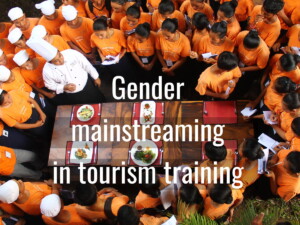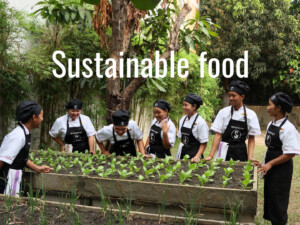How can vocational education contribute to women’s empowerment in hospitality & tourism?
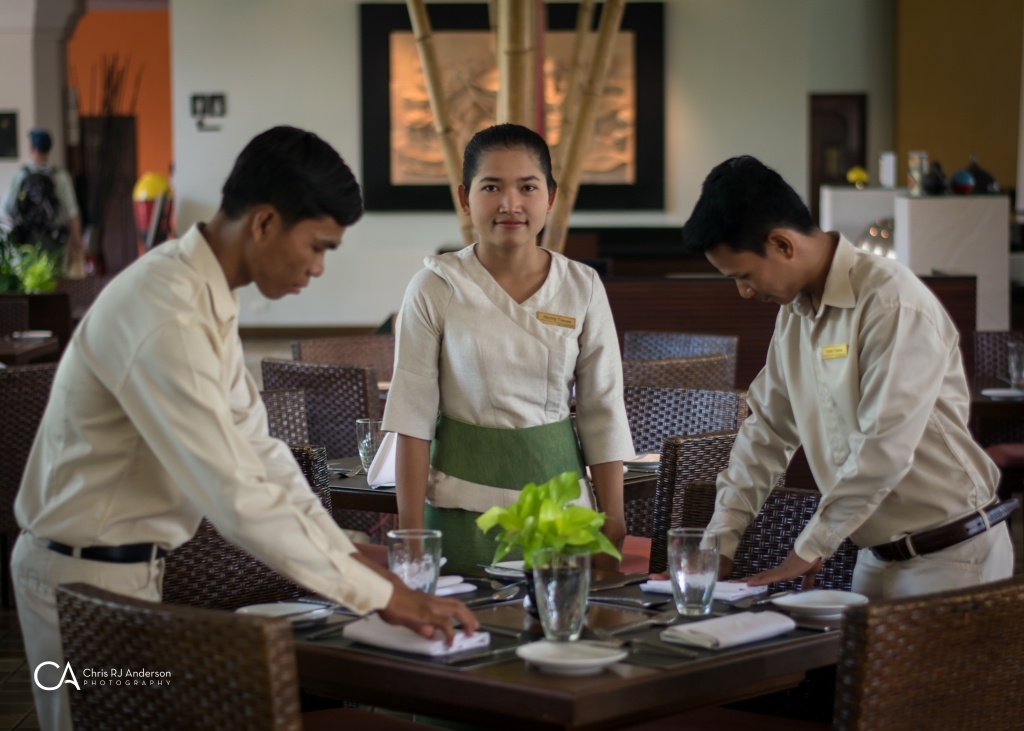
Everyone working in travel & tourism and the hospitality sector should be appropriately valued, paid, and recognised. With fresh research in hand, Sophie Hartman, Nguyễn Thị Thu Thảo, and Võ Thị Quế Chi from the Association of Southeast Asian Social Enterprises for Training in Hospitality & Catering (ASSET‑H&C) explain how vocational education and training can help achieve those outcomes for women. It’s a “Good Tourism” Insight.
For the past few decades, the hospitality & tourism (H&T) sector has been a major driver of economic growth and employment in the Mekong River region of Southeast Asia; Cambodia, Lao PDR, Myanmar, Thailand, and Vietnam. A large proportion of this growth is contributed by female workers. However, certain challenges are hindering their professional development. In an attempt to empower women to fulfil their career prospects, several vocational training centres have been offering future tourism workers, especially females, both comprehensive training and marketable skills. This approach has been proven to be effective in helping women sustain and advance their careers.
Opportunities and challenges for women’s empowerment within H&T
More than half of the tourism workforce are women, often young, low-skilled and lacking education. While hospitality & tourism has demonstrated its potential to be a vehicle for social mobility, economic empowerment and inclusion for women, challenges remain in creating a decent and equal working environment for them.
For the Mekong region these are largely rooted in gender norms and stereotypes placed on women that bleed into the workplace. It is found that social norms impact the H&T sector to a greater extent than other sectors as women tend to be engaged in ‘feminised’ roles that extend their prescribed household duties, such as cleaning and serving guests, and which tend to be informal and unstable. These gender norms also reinforce pressure on women to juggle work and domestic responsibilities.
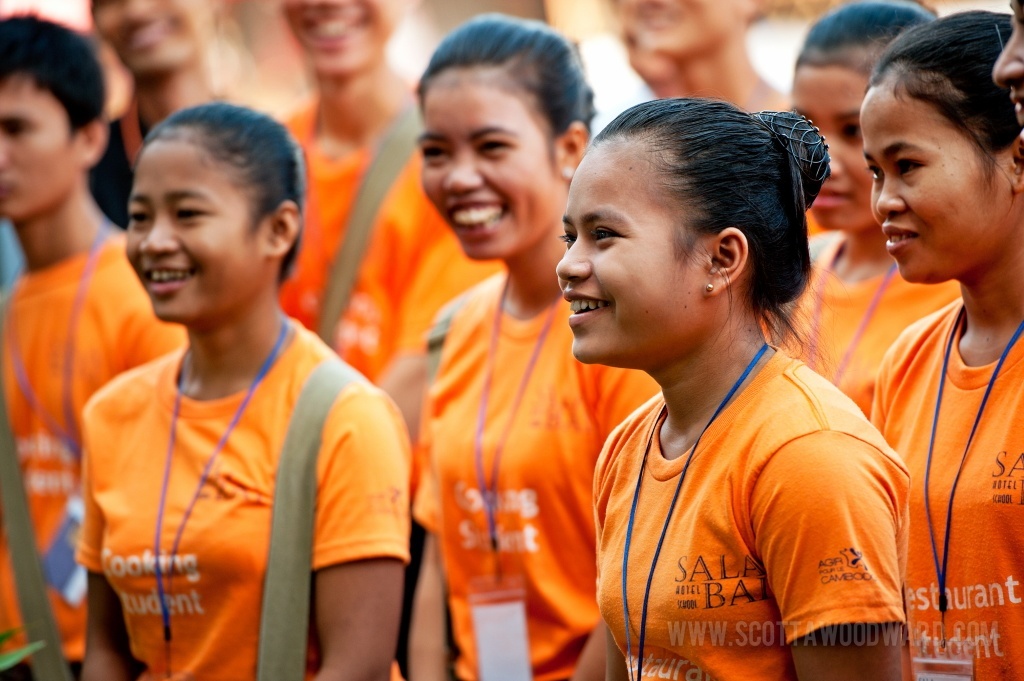
Vocational training opens up sustainable careers for vulnerable women
Access to quality vocational training with high focus on life skills is a fundamental first step to future empowerment of young women entering the hospitality & tourism industry, especially the most vulnerable ones.
Closing the education and skills gap can act as an important enabler for empowerment by both deconstructing gender norms and equipping young women with skills that increase their value to businesses and thus make them less ‘expendable’. By providing students not just with skills but with high-calibre skills that are valued in the upper-end of H&T, vocational training centres can better balance the power between employees and employers. This enables female graduates to approach the labour market with increased value and thus to choose their employer with greater freedom and seek higher average salaries. As a result, they gain greater agency and independence in shaping their careers.
The members of the Association of Southeast Asian Social Enterprises for Training in Hospitality & Catering (ASSET‑H&C), a network of vocational schools across the region, provide a path to employment in the hospitality & tourism sector for vulnerable youth. Each training school operates with a philosophy that training young women and men from marginalised backgrounds with in-demand vocational skills is instrumental in ensuring professional inclusion and lifting them out of poverty.
To achieve this, the schools provide a comprehensive and holistic approach to training with a special focus on life skills which are highly valued by the industry and enable their students to stand out once in employment. This way, they thrive to accommodate the specific needs of trainees, notably female students.
At Sala Baï Hotel and Restaurant School, the students take theatre classes for self-expression and to build confidence. Since females are often discouraged from speaking up in Cambodian society, and their voices are usually marginalised, this is particularly important for girls and young women.
At EGBOK, the students, both men and women, undergo comprehensive classes on women’s empowerment and gender equality, going into various social and gender issues such as marriage, love, relationships, child rearing and financial matters.
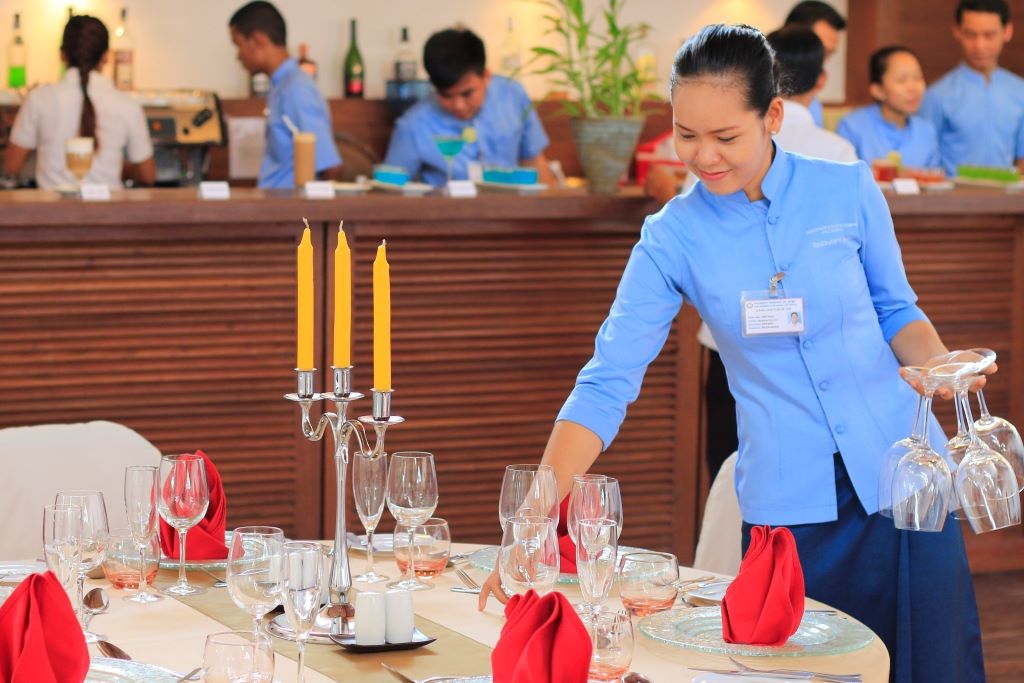
Hospitality and tourism schools can also challenge gender stereotypes
Families and communities in rural areas, in particular, tend to be resistant to young women enrolling in training programs to work in urban hospitality and tourism. Therefore, some schools work with successful female alumni as role models to show, rather than tell, both the families and the young women what they can accomplish with the right training and dispel any myths or negative stereotypes concerning the industry.
Role models are also influential in showing young female students that women can be successful in their career. As female supervisors and managers are not often seen in the sector, young women do not conceive of themselves in a leadership role. Once they encounter a woman in such positions, their perceptions of the industry change significantly, and they are inspired to pursue a career in the industry. Bearing this in mind, the pedagogical team at Ecole d’Hôtellerie et de Tourisme Paul Dubrule brings in female guest lecturers into both the classroom and career fairs.
Inle Heritage Hospitality Vocational Training Center further serves as an excellent example of women’s empowerment in that it was founded and is run by a woman hailing from Inle Lake itself. Taking advantage of the potential of tourism in the Inle Lake region, the school was set up to address the need for ‘alternative education’ for youth in Myanmar. As a business, Inle Heritage fosters an empowering working environment for women and supports work-life balance for working mothers, providing a school specifically for the children of staff.
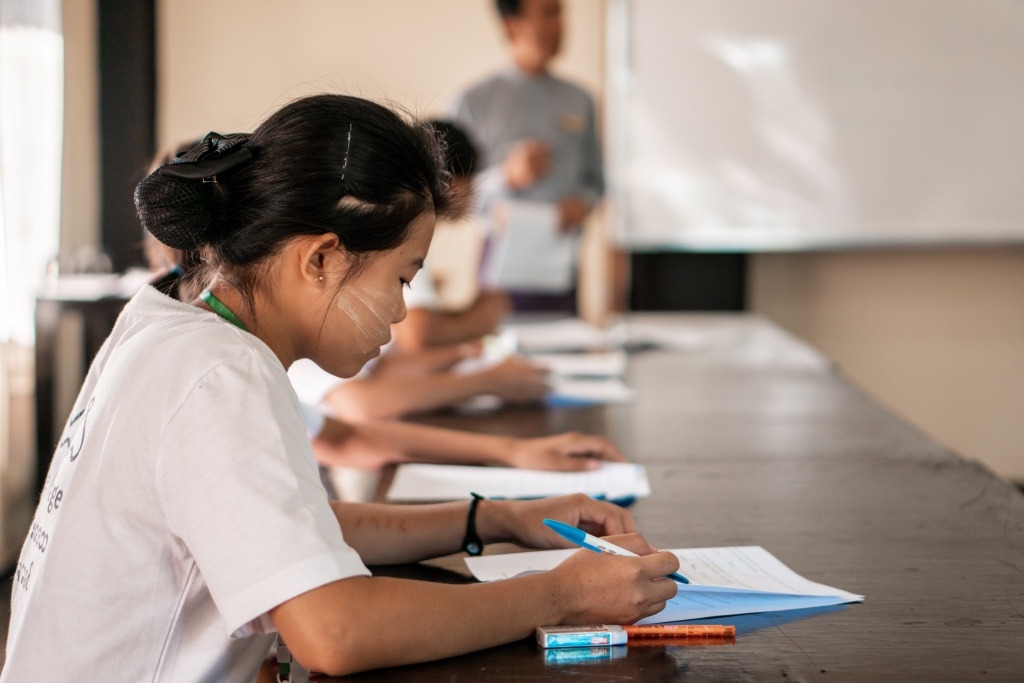
Exploring initiatives promoting women’s empowerment in Mekong H&T
With COVID-19, travellers are becoming more impact-conscious and hospitality & tourism is urged to reinvent itself to emerge stronger and more sustainable. This includes ensuring that no one is left behind in the recovery process.
While skills training certainly boosts women’s position and confidence to unlock career pathways, progression on gender equality and women’s well-being requires significant, holistic, and collaborative interventions. To truly include and benefit women at the same level as men, it calls for proactive actions and greater dedication to creating social impacts from private entities in the H&T sector in the Mekong region. Meanwhile, guidance from government and support from non-profit organisations are also required to ensure that barriers are lifted and opportunities more accessible.
Plan International and ASSET‑H&C have recently co-published “Valued. Paid. Recognized.” [PDF, hosted offsite], a study providing an overview of good and emerging practices among employers that support women’s empowerment in the H&T sector.
The research draws upon key publications on women’s empowerment, gender equality and women’s position in the hospitality and tourism sector, especially in the Mekong region. It also showcases the best practices to promote the personal and professional development of disadvantaged young women and men from five ASSET‑H&C member schools — Ecole d’Hôtellerie et de Tourisme Paul Dubrule, EGBOK and Sala Baï Hotel and Restaurant School in Cambodia, Inle Heritage Hospitality Vocation Training Center in Myanmar and KOTO in Viet Nam.
What do you think? Share a short anecdote or comment below. Or write a deeper “GT” Insight. The “Good Tourism” Blog welcomes diversity of opinion and perspective about travel & tourism because travel & tourism is everyone’s business.
Featured image (top of post): “At EGBOK, the students, both men and women, undergo comprehensive classes on women’s empowerment and gender equality, going into various social and gender issues such as marriage, love, relationships, child rearing and financial matters.” Image © 2017 Chris RJ Anderson Photography. Supplied by ASSET‑H&C.
Downloads
This article was adapted from “Valued. Paid. Recognized.”, a Desk Review of Business Efforts in Promoting Women’s Empowerment in the Mekong Hospitality and Tourism Sector (PDF, hosted offsite) by Plan International and ASSET‑H&C.
About the authors
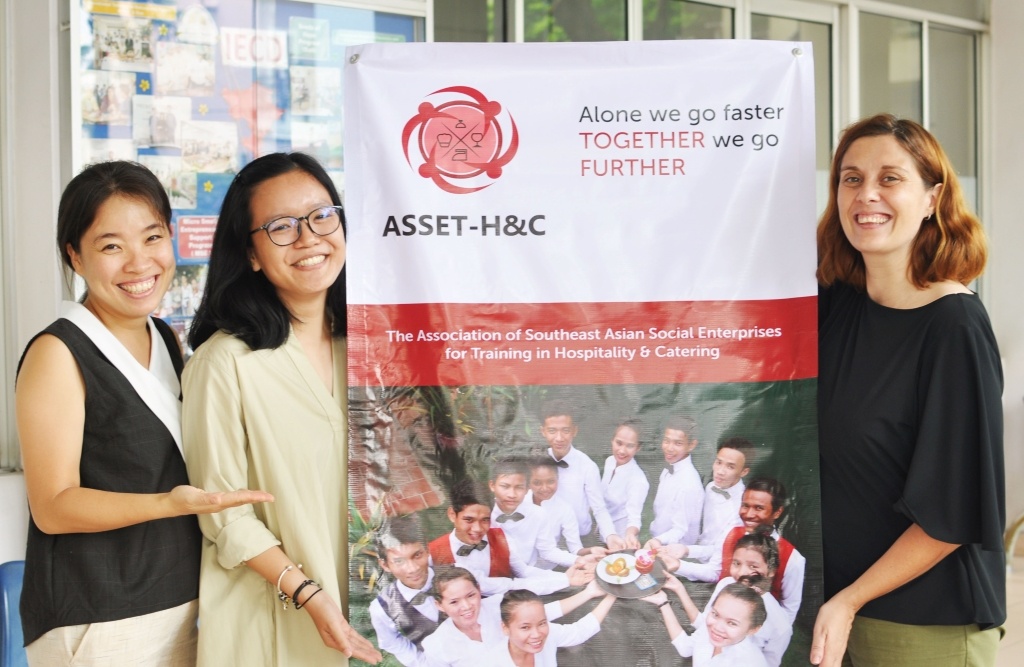
Sophie Hartman, Nguyễn Thị Thu Thảo, and Võ Thị Quế Chi comprise the co-ordination team of the Association of Southeast Asian Social Enterprises for Training in Hospitality & Catering (ASSET‑H&C). ASSET‑H&C is a regional network of vocational training centres that promote the social and economic inclusion of vulnerable people in Southeast Asia. ASSET‑H&C members work together on their common mission to make a positive impact on the lives of disadvantaged youths and adults.


